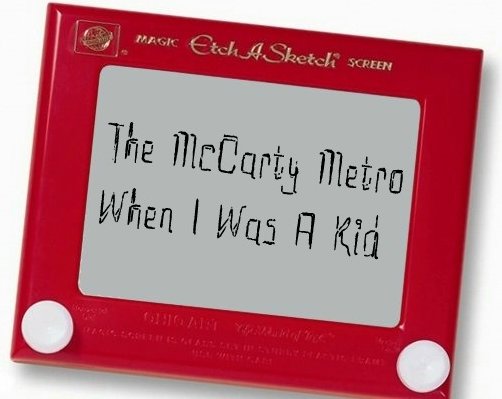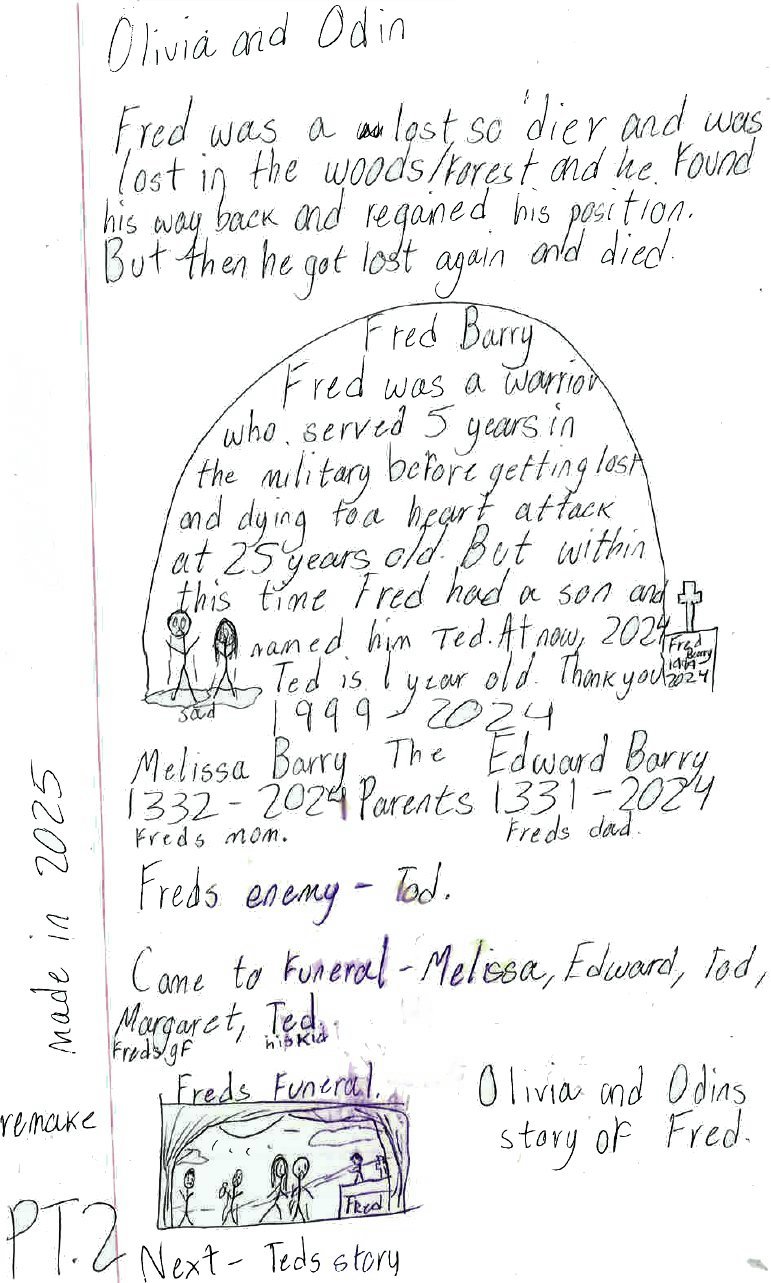|

A STORY SENT IN
BY READER OLIVIA
Please have
your younger readers share their writings, drawings, jokes,
or
basically anything with our Metro readers. Just email them to mccartymetro@gmail.com.

Submitted by Olivia McCarty
|
DAD WAS
RIGHT ALL ALONG!
 |
WATCHING
THE DETROIT LIONS ON THANKSGIVING WHEN WE WERE KIDS

"I think that was a Lem Barney
interception!"
WHAT
WAS YOUR FAVORITE TV CHRISTMAS SPECIAL?

|

TED KNIGHT
|
In 1967,
while recording a voiceover for a dull industrial
training film in a cramped Burbank studio, Ted Knight
paused between takes, looked at the sound engineer, and
muttered, “I didn’t crawl out of a foxhole in
Belgium to narrate instructions on fork-lift safety.”
The engineer laughed, but Knight was serious. Moments
later, he shifted gears and delivered the next few lines
in a booming, authoritative baritone, precise, clear,
and oddly captivating for content so mundane.
|
|
That
day, a producer from CBS happened to be in the building
scouting voice talent. Within months, Ted Knight was
being considered for a new sitcom being developed by
James L. Brooks and Allan Burns. The character was an
egotistical news anchor named Ted Baxter. Knight
initially refused the audition, saying, “You want me
to play a clown? I’ve been trying to get taken
seriously for twenty years.” But when he read the
script aloud at home, his wife Dorothy laughed so hard
she cried. “You have to do it,” she told him.
“That’s you, only louder.”
Born Tadeusz Wladyslaw Konopka on December 7, 1923, in
Terryville, Connecticut, Knight was raised in a
working-class Polish-American family steeped in Catholic
values and old-world discipline. As a boy, he stuttered
and was bullied for his thick accent and gangly frame.
He took refuge in mimicking radio voices, particularly
Lowell Thomas and Edward R. Murrow. The local priest
once told his mother that her son had “the voice of a
bishop, but the soul of a prankster.” He dropped out
of high school to enlist in the U.S. Army during World
War II, eventually serving with the 44th Infantry
Division. Knight saw combat in France and Germany and
earned five battle stars. But what stayed with him most
weren’t the medals, it was the camaraderie and the
makeshift stage shows he helped organize to entertain
troops during rest periods.
|

|
|
After the
war, Knight returned to Connecticut and enrolled in the
Randall School of Dramatic Arts under the G.I. Bill. He
paid rent by working nights at a local radio station. By
the 1950s, he had relocated to Albany, New York, where
he worked as an announcer and hosted “The Early
Show” on WROW-TV. He also performed puppet voices for
children’s programs, often switching between five or
six characters in a single episode. His talent for vocal
modulation earned him modest fame in the Northeast, but
not the kind of recognition he craved.
Frustrated, Knight moved to Los Angeles in the early
1960s. He picked up minor TV roles, mostly policemen,
security guards, or delivery men, and supplemented
income by narrating educational films and commercials.
His breakthrough came in 1970 when he was cast as Ted
Baxter on "The Mary Tyler Moore Show."
Initially hesitant to accept a comedic role that
bordered on parody, Knight transformed the arrogant
anchorman into a deeply flawed yet oddly sympathetic
character. Over seven seasons, he earned two Emmy Awards
and turned Ted Baxter into one of the most iconic
television characters of the decade. His timing was
razor sharp, and his delivery always walked a tightrope
between absurdity and heartbreak. He once told
"Newsweek," “Every line Ted Baxter says is a
cry for approval that never comes.”
After the show ended in 1977, Knight took a short break
before returning with the sitcom "Too Close for
Comfort" in 1980, playing a cartoonist and family
man. The series ran for several years and reinforced his
reputation as a dependable television lead. He also
delivered a standout performance as the uptight Judge
Smails in "Caddyshack" (1980), a role that
showcased his flair for physical comedy and barely
contained fury.
Knight’s personal life remained grounded throughout
his success. He married Dorothy Smith in 1948, and they
raised three children. He was known to bring his kids to
set and never missed a Little League game. He also
volunteered regularly at veterans’ hospitals, rarely
letting anyone photograph him during visits. He lived by
a simple rule: “Don’t make kindness public. Just do
it and shut up.”
In 1977, Knight was diagnosed with colorectal cancer. He
kept the illness private and continued working, even
taping "Too Close for Comfort" episodes while
undergoing treatment. Co-stars said he never once asked
for special treatment or missed a rehearsal. In early
1986, his condition worsened. He died on August 26,
1986, at St. Joseph Medical Center in Glendale,
California, surrounded by his wife and children.
On the day of his funeral, a small group of CBS
technicians placed a framed photo of Knight in the
control room of Studio City’s Stage 7. Beneath it, a
note read: “His voice is off, but the echo remains.”
.
|

HOW MANY OF THESE PEOPLE CAN YOU
NAME FROM YOUR CHILDHOOD?

If you have a
submission, or idea for "When I Was A Kid", please
submit it to mccartymetro@gmail.com
|